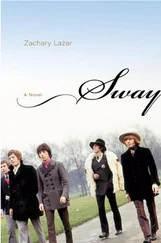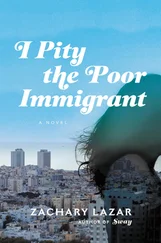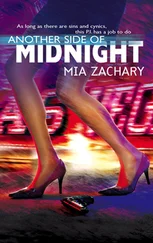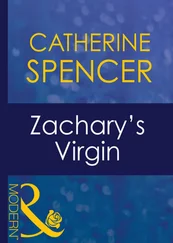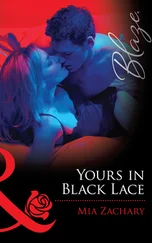*
One of the reasons we went to New York was to see Danny. He and I had talked on the phone a lot, but we hadn’t seen each other in years. I had told Stella so much about him and now I wanted to introduce them. The idea was to fly to New York City, spend a few days there, and take a train back to the Midwest. We arrived and the city was just as we always imagined it — the greatest. We took a cab from LaGuardia Airport to Brooklyn where Danny lived. And, there he was — the same scrawny wrists, same smile, same crooked tooth, same walk, only his eyes seemed somewhat muted. He and Stella clicked. Danny was the epitome of a starving artist. He painted, took photos, created installations, and made a bunch of other things. He had this small camcorder and took it everywhere, capturing thousands of hours of reality. For a short time, he had worked as one of Christo’s assistants, photographing his installations. After that he started assisting Hito — one of the greatest commercial photographers in New York. Danny also worked part-time at Christie’s warehouse, bubble-wrapping works of art that had been sold during their auctions. He was a small-time drug dealer as well. Danny talked quickly, intensely, and a lot. His thoughts jumped from topic to topic, themes changed with the speed of his thoughts. Following him was exhausting. We listened to Sun Ra, Miles Davis, John Coltrane. At the end of the first night, he pulled out a big bong and we smoked something. That was a first for me. I remember how his head became more three dimensional than it actually was. Stella refused to smoke with us. Later, I vomited endlessly and went to bed cursing myself.
The next day Danny suggested we go to a French painter’s opening reception. The invitation read:
BERNARD FOUCAULT
THE BEGINNING OF THE END
Contemporary French Painting
It was hot and humid. We wandered the streets all day long, visiting galleries, tourist spots, coffee shops, and bars. I was fascinated by the city in an inexplicable way. I had never thought that something like this — being captivated by a place — even existed. I always look skeptically at people who are in awe of San Francisco, London, Paris, Rome, and Venice. Why?
In Manhattan, I took photos of streets, displays, sky, buildings, trees, people. I tried to capture the entire afternoon. Fourteen rolls of black-and-white film later, we stopped back at Danny’s place, showered, and went to the opening. The gallery was in Chelsea. It was crowded. The wine wasn’t bad; there were fruit and cheese platters, cocktail napkins, toothpicks, grapes, and crackers. His paintings. Oh, his paintings were huge. Saturated, thick layers of oil paint with almost no imagery — only distant, cold colors — as if extracted from the intestines of extinct reptiles. Here and there, the eye managed — with great difficulty — to discern silhouettes of reclining men. A sense of something monumental, or rather minimally monumental (is there such a thing?), emanated mostly from the enormous size of the canvases. The paintings, however, hovered over me in a way I didn’t quite like. The feeling deep down in my gut — the one that always jumped whenever I came across real art — was now dormant, leaving me indifferent. I shared that with Stella. She gave me a look as if I had farted in a church.
I continued with wine and cheese until, eventually, things started falling into place. At some point, Danny introduced The Artist — I had already labeled him that, because of his pretentious beard and his manner of speaking, that consistently annoying “u-u-uh” before uttering the most banal thought. I had my Leica with me. I photographed him. I photographed him and his paintings, him against a gigantic self-portrait as a background. He was very open to the idea of being photographed. He wasn’t posing, yet he didn’t give off that careless attitude toward the camera I have noticed in some artists. He just looked at the camera, his dark eyes hiding nothing and saying nothing. I remember that Stella moved slowly and pensively, as if in a trance. On our way out, I noticed tears in her eyes. After the show, Danny, the Artist, his manager, Stella, and I dove into a nearby bar. He was painfully sensitive each time the conversation shifted to his art, but the terminology he used to describe it was pathetic. And it wasn’t because he didn’t have a good command of the language — he had studied and lived in America much longer than I had and spoke excellent English with a slight French accent — but simply because everything he said was completely unoriginal. I aggravated him ceaselessly, assaulting him when he least expected it, mocking the clichés with which he shielded himself. I didn’t stop fucking with his idea of high art, which I loathed and in which he believed. From time to time, my eyes would catch Stella’s and I read such astonishment in them — as if she had caught me playing with a lamb with a knife in my hand.
We stayed in the bar until they closed and kicked us out. We said goodbye to Bernard Foucault and his manager, promising that we’d see each other again. He kissed me, slipped his card in my palm, and insisted that we give him a call if we were ever in Paris. Stella and I stayed in New York for three more days, seeing anything and everything we could in the galleries and museums, We went out in the evenings, ate pizza slices for $1.50 by the metro stations, and spent all our money on jazz clubs, CDs, and books.
The last day in Manhattan, we walked and walked and walked, and Danny followed us everywhere with his camcorder, filming. At Penn Station we said goodbye, parted ways, and Stella and I got on the train and left New York.
*
I step on the gas and open the window.
I am in San Bernardino around eight. I decide to stop and grab something to eat before I hit the desert.
I see a mall in the middle of nowhere. The billboards have been erected into the blue sky, each taller than the next and each more annoying than the previous one. Gas stations, fast-food restaurants, auto dealers, shops all raise their hands so you spot them first. I park in front of Henry’s. The strong desert wind chases empty shopping carts around the half-empty parking lot. I grab one and enter the store. I fill the cart with nuts, chips, Toblerones, and some other stuff. I pay and get out. At the other end of the lot, I see a Bank of America branch — the bank where Stella and I have our checking account. I go in, say “Hi” to the girl behind the counter, and withdraw a thousand in new twenty-dollar bills.
There are four gas stations at the four corners of the intersection. The food clientele is torn between McDonald’s, Burger King, Taco Bell, Chinchiladas, Taste of China, and Thai Paradise. I can imagine the confusion of those fat people with their stomachs constantly inflamed by hunger, standing in the center of this enormous parking lot, surrounded by choices they would rather not make. I keep looking around as I get in the car and spot the purple sign of a pawn shop reading JEWELRY WORLD AND LOANS. Underneath, written directly on the window pane in white paint is “We Install Batteries.” There is a picture of two tiny bells. There is also a picture of two white doves carrying a sign in their beaks: GIVE HER DIAMONDS.
*
— will you hold this card in front of you for a second, i have to measure the light?
— what is this?
— a gray card
— i can see that
— eighteen percent gray
— eighteen percent gray?
— it’s a term, eighteen percent gray
— why do you need this eighteen percent gray card?
— i adjust the light meter with it. here, see — i point it at the gray card, like this, and the light meter now “knows” that this gray is eighteen percent gray. so, it can calculate what is darker or lighter than this gray. you see, every light meter, no matter how precise, needs a starting point. the color value of this card here is the universal starting point for all light meters — it’s eighteen percent gray. .
Читать дальше




